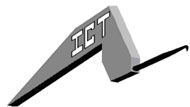Blades and Needles




Overview
There are two basic blade types – metal blades and ceramic blades. Metal blades are strong, flexible and easy to position. Ceramic blades are either standard ceramic blades, or stripline blades. Blades made using ceramic base material have good mechanical ability over a wide temperature range. They also have excellent electrical characteristics in that they exhibit much less blade-to-blade capacitance, and can be built in a matched impedance environment. They can also be used to mount two probes for use in single blade edge sensors and in Kelvin probing.
Metal Blade:
Metal blades have a very strong bond between the blade and the needle. The blade itself is also stable and robust. They are available in a wide variety of sizes and are well suited for most applications, including resistance trimming and multi-level probing. All blades are made to order.
Standard Ceramic Blade:
The standard ceramic blade is of high rigidity, making these blades well suited for higher density applications and thinner blades can be used. The lack of blade-to-blade capacitive coupling will minimize cross-talk in such situations. Standard ceramic blades are denoted by a “C” in front of the part number
Ceramic Stripline Blades:
This type of blade is designed so that the signal line is in a matched impedance environment (typically 50 ohms), thus making it the choice for higher frequency applications – up to 3 GHz. Stripline blades have a “CS” prefix to the part number.
Conclusion:
Metal blades are best for the majority of applications. Ceramic blades are better suited to high density or higher frequency requirements. Similar dimensional specifications apply to all blades – metal and ceramic. All blades are made to order.
Epoxy Needles
ICT offers a full range of needles for use in the build and repair of epoxy cards. There are multiple options of material (tungsten, tungsten rhenium, BeCu or Paliney), straight or bent, flat or pointed tips and many other dimensional variations. We can assist in identifying the needle specification which fully meets your need.
Options:
All epoxy needles are supplied to customer’s individual specifications. Variables includes such elements as material, whether tip is bent or needle is straight, tip type and diameter, tip length, stock diameter and taper length. All epoxy needles are made to order.






